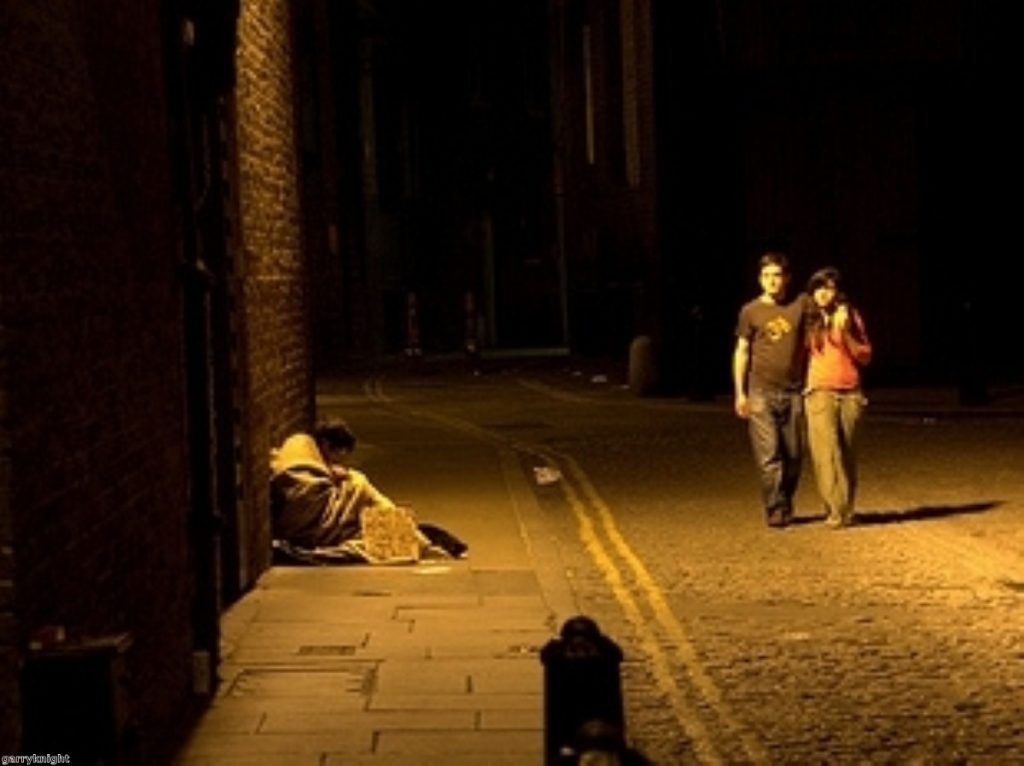No place to go: Homelessness sky-rockets in the UK
By Cassie Chambers
Homelessness has increased by 25% in just three years, according to a report out today.
The numbers, released by the data company SSentif, suggest more than 10,000 individuals and families are homeless today compared to 2009/10.
The company figures showed government spending to tackle homelessness fell over the same period, decreasing from £213.7 million in 2009 to £199.8 million in 2011/12.


Labour jumped on the numbers, using them to attack "the double dip recession made in Downing street".
"This surge in homelessness has been caused by a perfect storm of a double dip recession made in Downing Street and sharp falls in housebuilding," shadow communities and local government secretary Hilary Benn said.
"The government's own figures show that social house completions dropped 97% in 2011/12 compared to the year before, and affordable housing by 68%."
Yet the government hit back, arguing that the SSentif numbers are "narrow and misleading".
"We have maintained funding for homelessness grants at 2010-11 levels with £400m over the next four years, and on top of that we announced an additional £70m investment over the last year," a spokesman for the Department for Communities and Local Government said.
The spokesman went on to point out that homelessness is lower today than in 28 out of the past 30 years.
The managing director of SSentif, Judy Aldred, argued the results of the study were still "quite shocking".
She went on to suggest that analysing the data by area painted an even more dramatic picture of the problem, as several regions are experiencing levels of homelessness well above the national average.
Labour suggested that it's time for government to take a more proactive role in handling the homelessness crisis, stating: "To help bring homelessness down and get the economy moving, the government should use funds raised from a tax on bank bonuses to build thousands of affordable homes."
Local housing authorities must, by law, provide housing to "priority needs" groups, such as pregnant women, young people, and children with dependent families.









